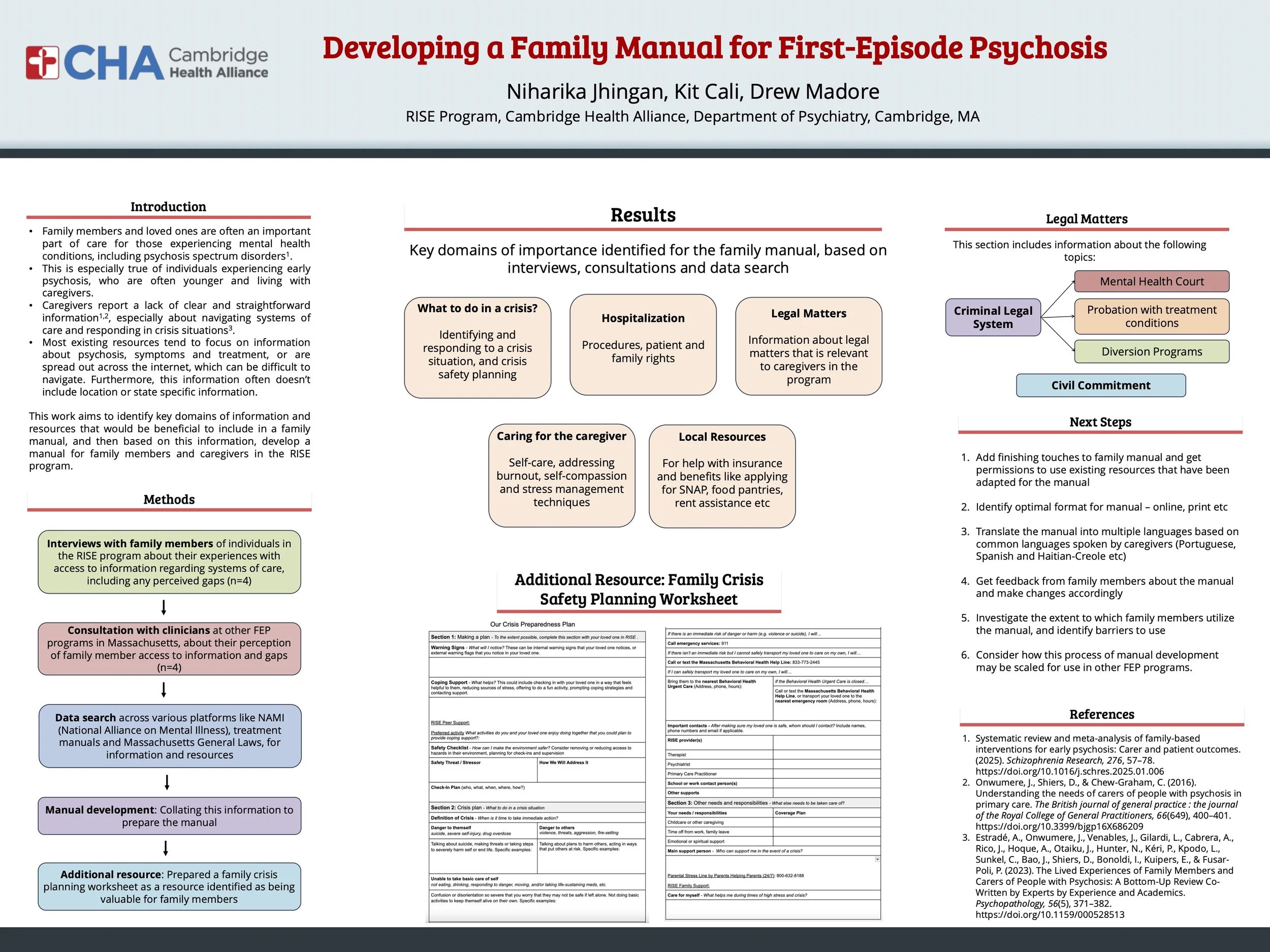Developing a Manual for Family Members in a First Episode Psychosis Program
Niharika Jhingan (1), Kit Cali (1), Drew Madore (1)
1. RISE Program, Cambridge Health Alliance, Department of Psychiatry, Cambridge, MA
Background: Family members and loved ones of individuals experiencing early psychosis in our FEP program have reported a lack of clear and straightforward information, especially about navigating systems of care and responding in crisis situations. While there exist several resources aimed at providing information to family members, they either tend to focus on information about psychosis, symptoms and treatment, or are spread out across the internet, which can be difficult to navigate. Furthermore, this information often doesn’t include location or state specific information. This points to the need for a family manual that is specific to the FEP program and its catchment location, as part of support for family members.
Methods: Key informant interviews were conducted with several groups in order to identify gaps in information provided to family members, including family members and clinicians in the FEP program, and family therapists at other Massachusetts FEP programs. These interviews yielded several key domains of information, which were used to develop a family manual.
Results: Informant interviews yielded the following key domains: 1) identifying and responding to a crisis situation, and crisis safety planning, 2) patient and family rights during hospitalization and what to expect, 3) legal concerns, such as criminal charges, 4) self-care for the caregiver and 5) local resources. A manual for family members was developed to include these domains, along with information specific to the FEP program, including an orientation to the team and important contacts.
Conclusions: A family manual may be a helpful source of support for family members in FEP programs, especially for information that is typically more difficult to access. Further work includes investigating the extent to which family members utilize the manual, translating the manual into multiple languages, and considering how this process of manual development may be scaled for use in other FEP programs.

